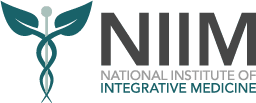by Bronwyn Gooden and Ellen Winnett
As we head into Spring, many of us will be anticipating the return of hay fever and allergies. Allergies emerge when your immune system responds to substances, e.g. pollens or certain foods, by treating them as a foreign pathogen. Our body tries to protect us from these pathogens via an immune response, stimulating our mast cells to release histamines. We then experience sneezing, coughing, inflammation, watery eyes etc. as our body tries to rid us of these pathogens.
In healthy people excess histamine can be eliminated efficiently, however, some people have insufficient enzymes such as DAO, which can lead to further symptoms including headaches, bloating, anxiety, dermatitis and asthma.
So, what can we do to reduce our allergies?
Quercetin is a natural compound found in certain foods such as citrus, apples, onions, parsley, sage, tea, red wine and other fruit & veggies, and is available as a nutritional supplement. It acts as an antioxidant and antihistamine, dampening the release of histamines from the mast cells, to reduce allergy symptoms and inflammation.
The latest technology has produced a phytosome formulation that may allow quercetin to be absorbed in amounts up to 20 times greater than a non phytosome form. This allows superior mast cell stabilistion and histamine management (5).
Diet
An antihistamine diet can also be helpful if you are prone to seasonal allergies or histamine clearance issues. You can also include bromelain which is an enzyme that helps reduce inflammation and is found in pineapple. Incorporate foods rich in omega-3 fatty acids (from small wild-caught fish, walnuts, and flaxseeds) and vitamin C (from citrus fruits, broccoli, capsicum, Brussel sprouts and kiwi), whilst avoiding excess sugar, to further modulate overactive immune responses and inflammation through the gut.
A saline nose wash will help clear any pathogens in the sinuses and reduce inflammation.
Gut Health and Immunity
Seasonal allergies can be more than a nuisance – they can be a sign your gut health needs attention. With about 70% of the immune system residing in the gut, the balance of trillions of microbes here plays a crucial role in immune regulation. Research shows adults and children suffering from seasonal allergies have a reduced diversity of gut microbes, contributing to an overactive immune system and heightened allergic reactions (1).
Probiotics, including Lactobacillus rhamnosus GG, L. reuteri and Bifidobacterium spp., may reduce allergy risk by helping to restore microbial balance and strengthen the gut barrier (2,3). Pairing them with prebiotics like asparagus, leek and garlic further nourishes beneficial flora for a well-balanced microbiome. However, some probiotic strains, like Lactobacillus casei, may produce histamines (4).
Vitamin D
Vitamin D regulates immune cells and plays a crucial role in managing seasonal allergies. Deficiency can heighten immune reactivity. Supplementing vitamin D helps block inflammatory responses in the lungs and boosts the production of anti-inflammatory compounds.
Home Environment
Reduce at-home exposure to allergens like pet dander. Every week, dust surfaces with a damp cloth, wash bedding in hot water (60°C) to kill dust mites and go over floors with a HEPA filter vacuum.
Dust mites and mould thrive at humidity levels above 70%. Consider using a dehumidifier to maintain humidity between 40-55%. On high pollen days, keep windows closed and consider using a HEPA air filter
For advice with supplements and at-home Vitamin D test kits, chat to our friendly NIIM Dispensary team. You can also view the range of test kits available from the NIIM Dispensary on their website.
References
- Watts, A., West, N., Zhang, P., Smith, P., Cripps, A., & Cox, A. (2021). The Gut Microbiome of Adults with Allergic Rhinitis Is Characterised by Reduced Diversity and an Altered Abundance of Key Microbial Taxa Compared to Controls. Int Arch Allergy Immunol, 182 (2), 94-105. https://doi.org/10.1159/000510536
- Hawrelak, J. A. (2021). Probiotics. In J. E. Pizzorno, & M. T. Murray, Textbook of Natural Medicine (5th ed.) (pp. 809-822). Elsevier.
- Bowman, D. (2017). Paediatric immune dysregulation. In J. Sarris & J. Wardle, Clinical Naturopathy: In Practice (pp. 202-206). Elsevier
- Hrubisko, M., Danis, R., Huorka, M., & Wawruch, M. (2021). Histamine Intolerance-The More We Know the Less We Know. A Review. Nutrients, 13(7), 2228. https://doi.org/10.3390/nu13072228
